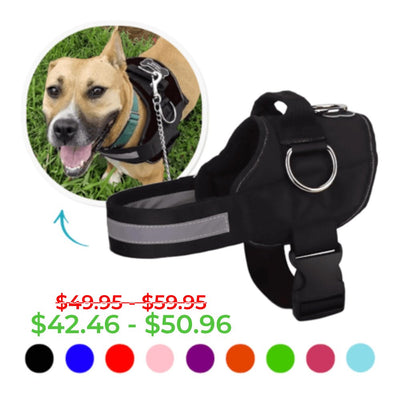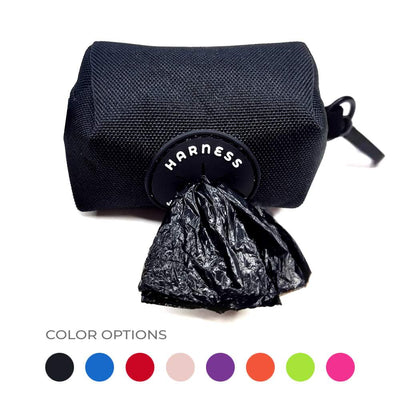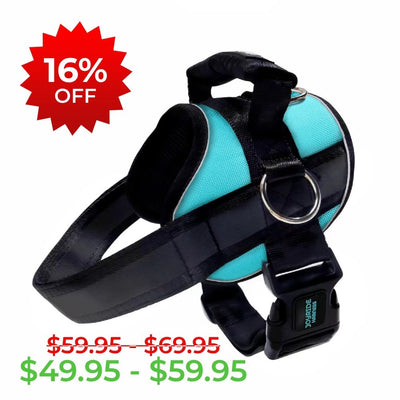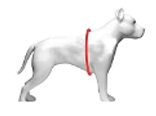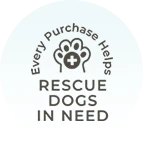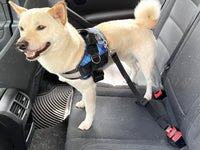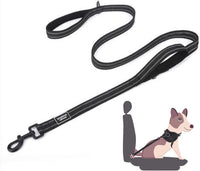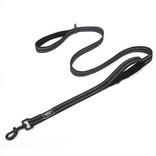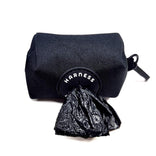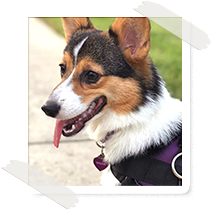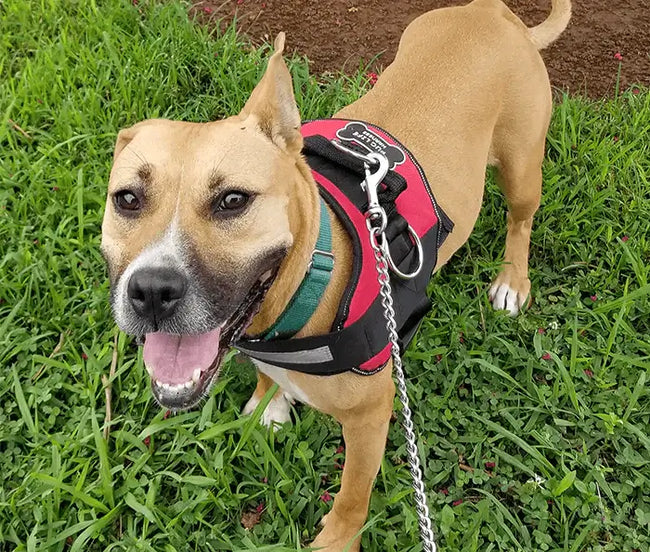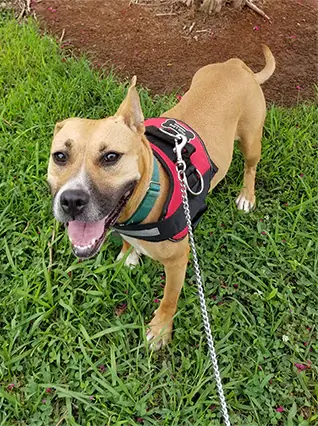8 Tips for Taking Care of a Senior Dog: A Comprehensive Guide to Senior Dog Care
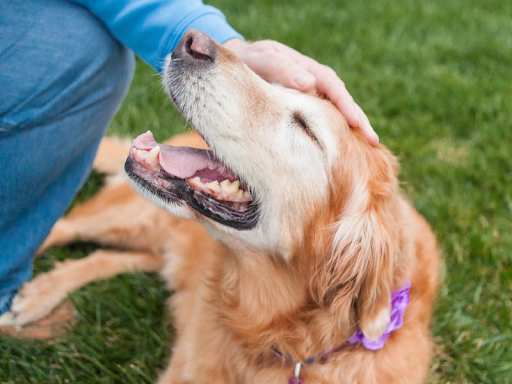
Every dog owner knows that as our furry friends age, they transition from playful puppies to wise old companions. This transition, while beautiful, comes with its own set of challenges.
Senior dogs, much like elderly humans, have specific needs and requirements that differ from their younger counterparts. Recognizing and addressing these needs is crucial to ensure they live their twilight years comfortably and happily.
At Joyride Harness, we want you and your dog to have the best life possible together, from puppy good until the golden years. That’s why we put together this guide on senior dog care. We aim to offer valuable insights and actionable tips to make this transition easier. With the right care and products, your senior dog's golden years can be filled with joy, comfort, and memorable moments.
1. Recognize the Signs of Aging in Senior Dog Care
Dogs, like humans, exhibit signs of aging. However, these signs can often be subtle and easy to miss if you're not paying close attention. If you are with your dog every day, it’s easier to miss changes in their looks or behavior.
Here are some common indicators that your dog is reaching senior status:
Graying Fur: Just as humans develop gray hair with age, dogs, too, can show graying, especially around the muzzle.
Decreased Energy Levels: While it's natural for puppies to be bursting with energy, senior dogs tend to slow down. They might prefer shorter walks or play sessions or nap more frequently.
Hearing or Vision Loss: Your dog might not respond as quickly to calls or might bump into furniture. These could be signs of diminished hearing or vision.
Changes in Appetite or Weight: Sudden weight gain or loss, or changes in eating habits, can be indicative of underlying health issues.
Stiffness or Difficulty Moving: Arthritis and joint issues are common in older dogs. If your dog seems reluctant to jump or climb stairs or show signs of discomfort after resting, it might be time to consult a vet.
Recognizing these signs early on is key. It not only helps in adapting your care routine but also in consulting with veterinarians for potential interventions or treatments. Knowledge is power, and in senior dog care, it can make a significant difference in the quality of life for your aging companion.
2. Adjust Their Diet for Optimal Health
As dogs age, their dietary needs evolve. Just like in humans, a senior dog's metabolism slows down, and they might not be as active as they once were. This calls for a diet that's tailored to their specific needs.
Obesity is harmful for dogs of all ages, but it’s especially bad for seniors. Excess weight puts added pressure on their joints, which will be painful if they are already suffering from arthritis.
Balanced Nutrition: Senior dogs require a balanced diet lower in calories but rich in essential nutrients. Look for dog foods specifically formulated for senior dogs, as they often contain the right blend of proteins, fats, and fibers suitable for their age.
Supplements: With age, certain health issues like joint pain or digestive problems can arise. Supplements such as glucosamine can support joint health, while probiotics can aid digestion. Always consult with your veterinarian before introducing any supplements to ensure they're right for your dog.
Hydration: Older dogs might not drink water as frequently, making them prone to dehydration. Ensure fresh water is always available and consider incorporating wet food into their diet to boost moisture intake.
3. Prioritize Regular Vet Check-ups for Senior Dogs
As the adage goes, prevention is better than cure; this is especially true for senior dogs. Regular veterinary check-ups can be the difference between early detection and late-stage interventions.
Bi-annual Visits: While younger dogs might fare well with annual vet visits, consider taking your senior dog for check-ups twice a year. This allows for timely detection and management of potential health issues.
Dental Care: Dental problems are common in older dogs. Regular dental check-ups can prevent issues like gum disease or tooth decay, which can lead to more severe health problems if left untreated.
Blood Work and Screenings: Routine blood tests can provide insights into your dog's organ health, while screenings can detect early signs of conditions like cancer. Early detection often leads to more effective treatments and better outcomes.
Discuss Behavioral Changes: If you've noticed any changes in your dog's behavior, be it increased anxiety, aggression, or lethargy, discuss them with your vet. These could be indicative of underlying health issues or simply a natural part of the aging process.

4. Maintain a Comfortable Living Environment
As dogs age, their comfort and safety needs can change. Making a few adjustments to their living environment can significantly enhance their quality of life.
Safe Spaces: Older dogs might seek quieter spots in the house to rest. Ensure they have a comfortable, quiet corner with a soft bed where they can retreat and relax.
Hazard Prevention: Senior dogs might not have the agility they once did. Remove potential tripping hazards, like loose rugs or cords. If you have slippery floors, consider adding non-slip mats to prevent falls.
Accessibility: Arthritis or joint pain can make it challenging for senior dogs to move around. Consider getting ramps or steps to help them access higher places, like a bed or a car. Using a harness with a handle can make it easier for you to give your senior dog a boost, too.
Outdoor Safety: When taking your senior dog outside, ensure their safety and comfort. The Joyride Harness is an excellent tool for this, offering support and control, ensuring walks are enjoyable without straining their aging bodies.
5. Keep Senior Dogs Active But Be Mindful of Their Limits
Physical activity remains crucial for senior dogs, but striking the right balance is essential. While you don’t want your dog to gain excess weight from being sedentary, you also don’t want to cause pain if they are uncomfortable.
Regular, Gentle Exercise: While they might not chase the ball as they used to, senior dogs still benefit from regular walks. Opt for shorter, more frequent walks rather than long, strenuous ones.
Low-impact Activities: Swimming is a fantastic low-impact exercise for older dogs. It allows them to get the exercise they need without putting undue stress on their joints.
Playtime: Engage in gentle play sessions. Toys that encourage them to think, like treat-dispensing toys, can be mentally stimulating and physically engaging.
Listen to Their Cues: Always be attentive to your dog's signals. If they seem tired or show signs of discomfort, it's time to take a break. And for those walks, using a Joyride Harness can ensure they're comfortable and supported throughout.
6. Mental Stimulation is Key When Caring for Senior Dogs
Aging doesn't just affect a dog's body; their minds need engagement too. Keeping your senior dog mentally stimulated can help stave off cognitive decline and keep them alert.
Puzzle Toys: These are excellent tools to challenge your dog's brain. They provide entertainment and reward your dog with treats, making the experience enjoyable.
Training Sessions: Believe it or not, old dogs can learn new tricks! Engage in short training sessions, teaching them simple commands or tricks. This not only stimulates their mind but also strengthens your bond.
Social Interaction: Regular interaction with other dogs or humans can be beneficial. It provides a change of scenery and a chance for your dog to socialize, keeping them mentally active.
New Experiences: Introduce your dog to new environments or experiences occasionally. A new walking route, a trip to a pet-friendly store, or even new toys can invigorate their senses.

7. Prioritize Grooming and Hygiene
As dogs age, their grooming needs might change. When caring for senior dogs, be sure to groom them regularly to keep them looking their best and check for possible health issues.
Regular Brushing: Brushing removes dead hair, stimulates the skin, and can be a bonding experience. For dogs with longer hair or those prone to matting, it's even more crucial.
Bath Time: While senior dogs might not require frequent baths, ensure they're clean and comfortable. Use gentle, moisturizing shampoos to prevent skin dryness.
Check Ears and Nails: Regularly check your dog's ears for signs of infection and keep their nails trimmed. Long nails can affect their gait and lead to discomfort or injury.
8. Be Patient and Understanding: The Heart of Senior Dog Care
As dogs age, they undergo physical and behavioral changes. It's essential to approach these changes with empathy and understanding. They might not be able to hold going to the bathroom for as long and have accidents in the house.
Behavioral Shifts: You might notice your senior dog becoming more anxious, less patient, or even grumpy. These changes can be due to discomfort, pain, or cognitive changes. Always approach such shifts with patience.
Communication: While your dog might not speak, they communicate in numerous ways. Pay attention to their body language, vocalizations, and behavior to understand their needs better.
Quality Time: Spend quality time with your senior dog. Simple gestures like petting, talking, or just sitting together can provide immense comfort and reassurance.
Seek Expert Advice: If you're concerned about behavioral changes, consult a veterinarian or pet behaviorist. They can offer insights and solutions to ensure your dog's well-being.
Enhancing Senior Dog Care with Joyride Harness
Caring for a senior dog is one of life's most rewarding experiences, filled with memories, love, and challenges. As we navigate these precious years, it is important to fully understand their unique (and changing) needs. With patience, love, and the right tools, we can ensure their comfort and happiness.
At Joyride Harness, we want the best for your fur baby. Whether you’re bringing home a brand new puppy or caring for a senior dog, we have the products and the information you need to ensure your dog gets the best care possible. Be sure to shop our full range of safe and comfortable products, including our best-selling harness. With its soft, fleecy lining and sturdy handle, it’s among the best options for our aging companions.
And, for more tips and tricks on caring for your fur baby, check out our blog!


